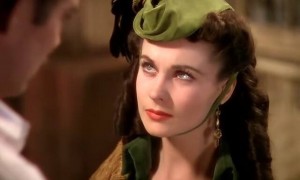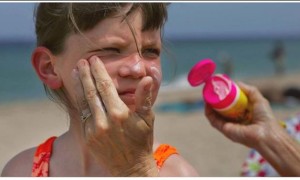关于节日,用英语介绍端午节
The Dragon Boat Festival, in Memory of a Chinese Poet(端午节)

端午节为每年农历五月初五,又称端阳节、午日节、五月节、五日节、艾节、端五、重午、午日、夏节,本来是夏季的一个驱除瘟疫的节日。端午节是我国汉族人民的传统节日,这一天必不可少的活动逐渐演变为吃粽子,赛龙舟,挂菖蒲、蒿草、艾叶,薰苍术、白芷,喝雄黄酒。据说,吃粽子和赛龙舟,是为了纪念屈原,所以解放后曾把端午节定名为“诗人节”,以纪念屈原。至于挂菖蒲、艾叶,薰苍术、白芷,喝雄黄酒,则据说是为了避邪。“中国端午节”为国家法定节假日之一,并列入世界非物质文化遗产名录。历代有大量诗、词、歌、赋等文学作品传世。
1端午节常识介绍
Duanwu Festival (端午节), also known as the Dragon Boat Festival (龙舟节), is a traditional and statutory holiday associated with Chinese and other East Asian and Southeast Asian societies as well. It is a public holiday in China. The festival is also celebrated in countries with significant Chinese populations, such as in Singapore and Malaysia. Equivalent and related festivals outside Chinese-speaking societies include the Kodomo no hi in Japan, and Dano in Korea.
The festival occurs on the 5th day of the 5th month of the lunar calendar on which the Chinese calendar is based. this is the source of the alternative name of the Double Fifth. In 2011 this falls on June 6. The focus of the celebrations includes eating the rice dumpling zongzi, drinking realgar wine xionghuangjiu (雄黄酒), and racing dragon boats.
The Duanwu Festival is believed to have originated in ancient China. A number of theories exist about its origins as a number of folk traditions and explanatory myths are connected to its observance. Today the best known of these relates to the suicide in 278 BC of Qu Yuan, poet and statesman of the Chu kingdom during the Warring States period.
2与端午节有关的术语
端午节的来历
Duanwu(Chinese: 端午; pinyin: duānwǔ), as the festival is called in Mandarin Chinese, literally means "starting/opening horse", i.e., the first "horse day" (according to the Chinese zodiac/Chinese calendar system) to occur on the month;however, despite the literal meaning being wǔ, "the [day of the] horse in the animal cycle", this character has also been interchangeably construed as wǔ (Chinese: 五; pinyin: wǔ) meaning "five". Hence Duanwu, the "festival on the fifth day of the fifth month"》
1.纪念屈原
此说最早出自南朝梁代吴均《续齐谐记》和南朝宗懔《荆楚岁时记》。据说,屈原投汨罗江后,当地百姓闻讯马上划船捞救,一直行至洞庭湖,始终不见屈原的尸体。那时,恰逢雨天,湖面上的小舟一起汇集在岸边的亭子旁。当人们得知是为了打捞贤臣屈大夫时,再次冒雨出动,争相划进茫茫的洞庭湖。为了寄托哀思,人们荡舟江河之上,此后才逐渐发展成为龙舟竞赛。百姓们又怕江河里的鱼吃掉他的身体,就纷纷回家拿来米团投入江中,以免鱼虾糟蹋屈原的尸体,后来就成了吃粽子的习俗。看来,端午节吃粽子、赛龙舟与纪念屈原相关,有唐代文秀《端午》诗为证:“节分端午自谁言,万古传闻为屈原。堪笑楚江空渺渺,不能洗得直臣冤。”
The story best known in modern China holds that the festival commemorates the death of the poet and minister Qu Yuan (c.340–278 BC) of the ancient state of Chu during the Warring States period of the Zhou dynasty. A cadet member of the Chu royal house, Qu served in high offices. However, when the emperor decided to ally with the increasingly powerful state of Qin, Qu was banished for opposing the alliance and even accused of treason.During his exile, Qu Yuan wrote a great deal of poetry. Twenty-eight years later, Qin captured Ying, the Chu capital. In despair, Qu Yuan committed suicide by drowning himself in the Miluo River.
It is said that the local people, who admired him, raced out in their boats to save him, or at least retrieve his body. This is said to have been the origin of dragon boat races. When his body could not be found, they dropped balls of sticky rice into the river so that the fish would eat them instead of Qu Yuan's body. This is said to be the origin of zongzi.
During World War II, Qu Yuan began to be treated in a nationalist way as "China's first patriotic poet". The view of Qu's social idealism and unbending patriotism became canonical under the People's Republic of China after 1949 Communist victory in the Chinese Civil War.
2.纪念孝女曹娥
此说出自东汉《曹娥碑》。曹娥是东汉上虞人,父亲溺于江中,数日不见尸体,当时孝女曹娥年仅十四岁,昼夜沿江号哭。过了十七天,在五月五日投江,五日后抱出父尸。
3.迎涛神
春秋时吴国忠臣伍子胥含冤而死之后,化为涛神,世人哀而祭之,故有端午节。这则传说,在江浙一带流传很广。伍子胥,楚国人,父兄均为楚王所杀,后来子胥投奔吴国,助吴伐楚,五战而入楚都郢城。当时楚平王已死,子胥掘墓鞭尸三百,以报杀父兄之仇。吴王阖闾死后,其孙夫差继位,吴军士气高昂,百战百胜,越国大败,越王勾践请和,夫差许之。子胥建议,应彻底消灭越国,夫差不听,吴国太守,受越国贿赂,谗言陷害子胥,夫差信之,赐子胥宝剑,子胥以此死。子胥本为忠良,视死如归,在死前对邻舍人说:“我死后,将我眼睛挖出悬挂在吴京之东门上,以看越国军队入城灭吴”,便自刎而死,夫差闻言大怒,令取子胥之尸体装在皮革里于五月五日投入大江,因此相传端午节亦为纪念伍子胥之日。
3让我们谈谈端午节
Tom: Why do you celebrate the Dragon Boat Festival? 汤姆:你们为什么要过端午节?
Mike: To commemorate a great patriotic poet of China: Qu Yuan. 迈克:是为了纪念中国伟大的爱国诗人:屈原。
Tom: The Dragon Boat Festival should have a long history. 汤姆:那应该有很长的历史了。
Mike: Yes. The tradition of the Dragon Boat Festival started more than 2,000 years ago. 迈克:是啊,端午节已有两千多年的历史。
Tom: How do you celebrate it? 汤姆:那你们一般怎么庆祝?
Mike: There is a special food for the festival. 迈克:端午节有一种特殊食品。
Tom: What is it? 汤姆:那是什么?
Mike: We'll eat Zongzi. The stuffing in Zongzi could be dates, bean paste, yolk, chestnuts, or other things. There are so many kinds. People in southern China like to have meat in Zongzi. 迈克:我们会包粽子吃,里面能放枣啊,豆沙、蛋黄、栗子什么的,有很多种馅儿呢。南方人还喜欢包肉馅儿的粽子。
Tom: Wow, I almost drooled because of your description. 汤姆:哇。说得我都快流口水了呢。
Mike: What's more, there are also dragon boat races in some places of southern China. 迈克:还有呢,南方很多地方还会有赛龙舟呢!
Tom: Do you know when the Dragon Boat Festival is? 汤姆:你知道什么时候是端午节吗?
Mike: The Dragon Boat Festival falls on the fifth day of the fifth lunar month. 迈克:农历五月初五是端午节。
Tom: I should go and have a look if I have a chance. 汤姆:有机会一定要去看看。
4再多学点单词吧!
★cantonese n. 广东话;广东人
I used to think of Cantonese as a dialect.
我曾经把粤语看作一种方言。
★focus n. 焦点;焦距;清晰;中心
Our focus now should be in drawing lessons.
我们现在的重点应当是吸取教训。
★racing n. 赛马;竞赛
What is you rank when you exceed the second player during the racing?
当你在比赛中超过第二个选手时,你的排名是什么?
★explanatory adj. 解释的;说明的
The subject may merit a brief explanatory note.
这题目也许要个简明的注释。
★warring adj. 敌对的;交战的;冲突的
Prose was popular during the Warring States Period, mainly as the historical prose.
战国时代的时候散文比较兴盛,主要是一些历史散文。







